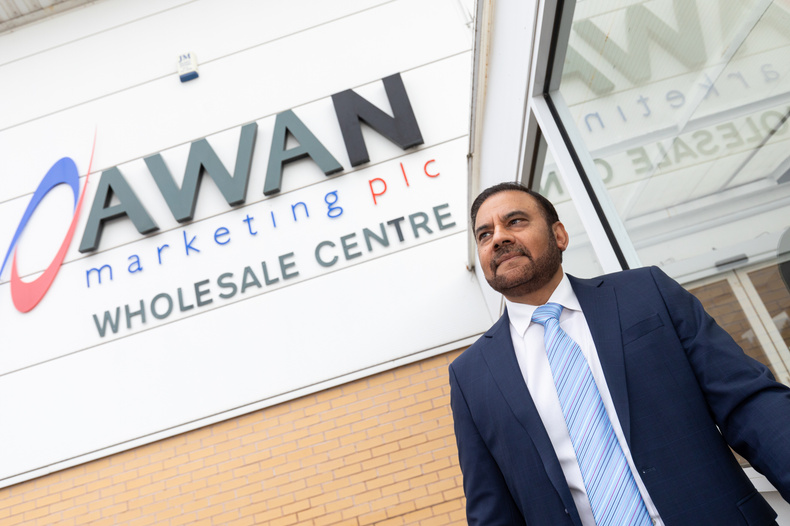Think ahead to how your business would cope with a crisis

The conflict in the Middle East is devastating on so many levels, writes Nasir Awan.
From a human perspective, many lives have been lost, while millions of others across the region are suffering unfathomable terror, violence and trauma.
We can only hope and pray that a resolution is found and there will be a return to some semblance of normality.
The knock-on effect for businesses, of course, pales into significance compared to the experiences of those in the cross-fire of the conflict.
Yet, geopolitical tensions across the globe over the past couple of years have certainly opened our eyes, as business people, to how reliant we are on international supply chains.
For example, it wasn’t until Russia’s invasion of Ukraine began on 24 February, 2022, that we really took stock of how much grain was produced and exported by that particular region.
From a broader perspective, the significant impact of the Middle East conflict on shipping is a reminder that we’re perhaps not as self-sufficient as we’d like to be.
The delays caused by shipping containers being diverted away from the Suez Canal is causing delays and pile-ups – the knock-on effects being a shortage of goods in the shops and then increased prices when they do finally arrive.
If you take my wholesale business, Awan Marketing International, as an example, we import a lot of low value, high-volume products such as hardware, kitchen items and car products.
Current delays are adding around 20 per cent on to the costs of bringing those goods in, which significantly eats into profit margins.
The lead-up times to Valentine’s Day, Easter and Mother’s Day - all important trading period for UK retailers – have also been eroded.
Importers like ourselves would traditionally have Valentine’s cards, gifts and products ready for display and distribution at the beginning of January.
However, shipping delays meant they they’ve not reached us until the end of the month. By the time these goods are distributed to retailers, they are left with as little as one to two weeks to sell them.
To counteract this, we’re facing the possibility of storing some of these products for a whole year.
Reports suggest many container ships are unlikely to resume transits via the Suez Canal for at least the first six months of 2024, as major carriers will only return to the key trade waterway when the risk of attacks on commercial vessels has subsided.
Instead, freight companies will continue reroute away from the Red Sea, taking the longer route around the Cape of Good Hope in Africa.
This adds approximately 4,000 nautical miles, equivalent to 7,300 km, or 10 to 14 days of travel to the journey which results in surcharges being applied to logistics costs.
The price of shipping containers had recently come down to around $1,200 (£950) per container – having ballooned to as high as $18,000 (£14,500) during the pandemic due to a shortage when PPE was being transported around the world.
Now, we’re seeing prices shoot back up to around $6,500 (£5,200) per container. With delays of three to four weeks on top (taking return journeys into account) this is placing a strain on importers. In many cases, the price of the containers and costs of shipping are outstripping the value of the goods.
And let’s not forget that our region is a manufacturing heartland, with many automotive companies reliant on components and products that are imported from the Far East.
The automotive sector is already playing catch-up from a parts shortage caused by the Covid-19 pandemic.
Across Europe, companies like Tesla, Volvo, and Michelin recently announced temporary stoppages in some of their production plants due to the late arrival of the materials they need.
This will translate into thousands fewer cars being manufactured in 2024.
So, what can we do as business owners to counteract or indeed, be better prepared, for the knock-on effect of volatility in the international arena?
There are many factors that remain beyond our control. But I would encourage all businesses – from large manufacturers to small retailers - to think about their products, processes and procedures and the potential risks attached.
This includes reviewing order times, better planning inventories, and establishing new alliances and supply sources.
It’s better that we take the initiative so we’re prepared in the event of such crises, rather reacting after the event.
Dr Nasir Awan MBE DL is president of Greater Birmingham Chambers of Commerce and CEO of Awan Marketing International
This column first appeared in the Birmingham Post
